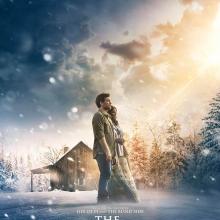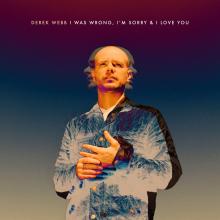christian contemporary music

Image via The Shack Facebook.
The Gospel isn’t simplistic, and its representations shouldn’t be, either. If The Shack were created with this creed in mind, perhaps it would be a better work of art. Instead, sadly, it’s nothing more than a religious tract.
It’s been twenty years since I rose and cleared my throat
It’s been ten years since stood outside the church
- Derek Webb, I Was Wrong, I’m Sorry & I Love You
The first verse of the first song on the Derek Webb’s new album is a recap of his music career, from Caedman’s Call in the 90s to his solo career launched with She Must and Shall Go Free (2003). Since that first solo album, Webb has pushed all sorts of buttons in the church and the “Christian” music world. From albums Stockholm Syndrome (2009) to Sola Mi (2012) and Ctrl (2012), he’s pushed his own musical boundaries and themes, incorporating elements of hip-hop and electronica and veering away from his gospel-country-folk roots.
I Was Wrong, I’m Sorry & I Love You releases today across the country. While you can buy the album online, it is also at a number of Christian retailers for only $4.99 (an unbelievable deal, I must say). It is a return to those gospel-country-folk roots while still embracing all he’s learned in the past 10 years of a solo career. The bright guitar sounds return alongside mellow synthesizers, and for some songs, a crowd-sourced chorus.
But more important than the sounds are the lyrics. They’re not snarky or sarcastic like earlier records Mockingbird and The Ringing Bell, but still raw and personal.
Trey Pearson, front man and creative mind behind the band, Everyday Sunday, is in many ways the picture of a successful Contemporary Christian Music artist. He’s toured the world, played to thousands of fans at a time and sold hundreds of thousands of records. So I was intrigued when I sat down with him at the recent Wild Goose Festival in North Carolina to learn more about why this icon of Christian pop was going solo with his most recent record.
How did you get started in the Contemporary Christian Music (CCM) scene?
I was introduced to the scene as a teenager, finding out that people listened to "Christian music.” I started going to "Christian concerts,” and was inspired to write my own songs and have a band. I was already into performance art as a teenager from doing theater, musicals, acting, and modeling for commercials, print, and things of that nature. I grew up teaching myself piano, and was intrigued by the idea of playing songs for people.
Given my background, I felt like I needed to do "Christian songs" to glorify God with my art. Long story short, after opening for several signed artists, I dropped out of college (after being on honor roll through my freshman year) to make an independent album and pursue a record deal. I went to Nashville, and knocked on doors until someone would listen. I signed a deal three months after I released my independent album.

